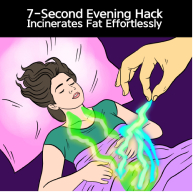Menopause is a natural transition that every woman experiences, but the journey can be filled with uncomfortable symptoms—hot flashes, night sweats, mood swings, insomnia, brain fog, and more. These changes are largely the result of declining estrogen and progesterone levels, combined with the disruptive effects of cortisol, the body’s stress hormone.
While hormone replacement therapy (HRT) is one option, many women are searching for safer, more natural ways to restore balance. This is where herbal remedies step in. For centuries, plants have been used to ease hormonal shifts. Today, modern science is beginning to validate their effectiveness.
In this comprehensive guide, we’ll explore the best herbs for balancing hormones during menopause, how they work, what the research says, and how they can be safely incorporated into your wellness routine.
Why Hormonal Balance Matters During Menopause
The Role of Estrogen and Progesterone
- Estrogen influences bone health, skin elasticity, cognitive function, and cardiovascular health.
- Progesterone balances estrogen, supports sleep, stabilizes mood, and promotes calmness.
- During menopause, levels of both hormones decline, leading to common symptoms.
Cortisol: The Hidden Hormone Saboteur
Many women overlook the role of cortisol. Chronic stress causes cortisol to spike, which:
- Accelerates estrogen and progesterone decline
- Increases hot flashes and night sweats
- Disrupts sleep and mood
- Leads to weight gain and fatigue
This is why a holistic approach that addresses both sex hormones (estrogen, progesterone) and stress hormones (cortisol) is essential.
Herbal Remedies That Support Hormone Balance
Below we explore eight science-backed herbs that help women navigate menopause naturally.
1. Ashwagandha (Withania somnifera) – The Stress Balancer
Ashwagandha is an ancient adaptogen known for restoring balance in times of stress.
How it works:
- Reduces cortisol levels and balances the stress response
- Improves sleep quality and reduces anxiety
- May support estrogen balance indirectly by lowering stress burden
Scientific evidence:
- Clinical trials show significant reductions in cortisol and improvements in sleep quality.
- A study in perimenopausal women found ashwagandha improved hot flashes, mood, and hormonal markers.
Best for: Stress management, sleep support, mood stabilization.
2. Green Tea Extract – The Metabolic Protector
Green tea extract is rich in catechins, powerful antioxidants that may influence cortisol and metabolism.
How it works:
- Supports healthy cortisol metabolism
- Reduces fat storage and cravings (common during hormonal shifts)
- Protects against oxidative stress
Scientific evidence:
- Certain green tea compounds inhibit enzymes involved in cortisol activity.
- Studies in postmenopausal women show metabolic improvements with green tea extract.
Best for: Weight management, energy, and stress regulation.
3. Rhodiola Rosea – The Energy Enhancer
Rhodiola is another adaptogen that helps the body adapt to physical and emotional stress.
How it works:
- Supports adrenal function, reducing stress fatigue
- Improves energy, mood, and focus
- Helps buffer against cortisol spikes
Scientific evidence:
- Trials show rhodiola improves fatigue and reduces stress symptoms.
Best for: Fatigue, brain fog, resilience under stress.
4. Schisandra Berry – The Hormone Harmonizer
Schisandra has long been used in traditional medicine for female vitality.
How it works:
- Promotes restful sleep
- Reduces hot flashes and night sweats
- Supports mood and cognitive clarity
Scientific evidence:
- Studies suggest Schisandra improves menopause-related sleep issues and vasomotor symptoms.
Best for: Hot flashes, sleep, emotional balance.
5. Sage (Salvia officinalis) – The Hot Flash Reliever
Sage is one of the best herbs specifically for vasomotor symptoms.
How it works:
- Contains compounds with mild estrogenic effects
- Reduces hot flashes, night sweats, and mood swings
- Supports cognitive function
Scientific evidence:
- Clinical trials show sage extract significantly reduced hot flashes and improved sleep and mood.
Best for: Hot flashes, night sweats, irritability.
6. Red Clover (Trifolium pratense) – The Phytoestrogen Source
Red clover is rich in isoflavones, plant compounds that mimic estrogen.
How it works:
- Binds to estrogen receptors to ease symptoms of low estrogen
- Supports bone health and cardiovascular function
- May improve vaginal dryness and discomfort
Scientific evidence:
- A 12-week trial showed women taking red clover extract had reduced hot flashes and improved overall well-being.
Best for: Estrogen support, hot flashes, vaginal health.
7. Black Cohosh (Actaea racemosa) – The Classic Menopause Herb
Black cohosh is one of the most widely studied herbs for menopause.
How it works:
- May act on serotonin receptors and estrogen pathways
- Reduces hot flashes, mood swings, and sleep disruption
Scientific evidence:
- Systematic reviews show positive results in relieving hot flashes and other menopausal symptoms.
Best for: Hot flashes, mood, sleep issues.
8. Chasteberry (Vitex agnus-castus) – The Progesterone Supporter
Chasteberry supports balance between estrogen and progesterone.
How it works:
- Stimulates progesterone production
- Reduces estrogen dominance symptoms
- Improves mood, sleep, and breast tenderness
Scientific evidence:
- Trials show chasteberry reduced menopausal discomfort, improved mood, and lowered scores on symptom scales.
Best for: Mood swings, sleep disturbances, progesterone balance.
How Herbal Remedies Work Together
When combined, these herbs can provide a synergistic effect:
- Adaptogens (ashwagandha, rhodiola, schisandra) calm cortisol and reduce stress.
- Phytoestrogens (red clover, black cohosh, sage) gently support estrogen levels.
- Progesterone supporters (chasteberry) balance hormone ratios.
- Symptom relievers (sage, black cohosh, schisandra) directly target hot flashes, sleep, and mood.
This holistic approach addresses both root causes (hormonal decline, stress imbalance) and visible symptoms.
Lifestyle Practices to Complement Herbal Remedies
- Stress management: Meditation, yoga, breathwork
- Nutrition: Whole foods rich in phytoestrogens (soy, flax, legumes)
- Exercise: Weight training for bone health; aerobic activity for cardiovascular balance
- Sleep hygiene: Regular sleep routine, limiting blue light
- Mind-body connection: Journaling, mindfulness, community support
✨ “If you’re ready to embrace menopause with more balance, fewer hot flashes, deeper sleep, and renewed energy, then it’s time to discover how MenoRescue™ can support your journey. Backed by science and powered by nature, this unique herbal formula is designed to help women restore harmony during one of life’s most important transitions. Don’t just manage menopause—thrive through it with MenoRescue™.” ✨
Conclusion
From reducing hot flashes with sage and black cohosh, to calming cortisol with ashwagandha and rhodiola, and supporting progesterone with chasteberry—women now have more natural options than ever before.
✨ Takeaway: With the right blend of herbs, lifestyle practices, and professional guidance, you can embrace menopause not as a struggle, but as a powerful transition into a new stage of vitality.
Frequently Asked Questions (FAQ)
1. Are herbal remedies safe for everyone?
Most herbs are safe when taken as directed, but women with hormone-sensitive conditions (e.g., breast cancer) should consult a healthcare provider.
2. How long before results appear?
Many women report improvements in 4–8 weeks, though consistency is key.
3. Can herbal remedies replace HRT?
For some women, yes. For others, herbs may be best used alongside conventional care. Always seek professional guidance.
4. Do these herbs interact with medications?
Yes, some herbs may interact with antidepressants, blood pressure drugs, or hormone treatments. Consult your doctor before starting.
5. Which herb is best for hot flashes?
Sage, black cohosh, and red clover are among the most effective.
Menopause does not have to mean endless discomfort. By leveraging the wisdom of nature and the validation of modern science, herbal remedies offer safe, effective, and holistic solutions for balancing hormones.








